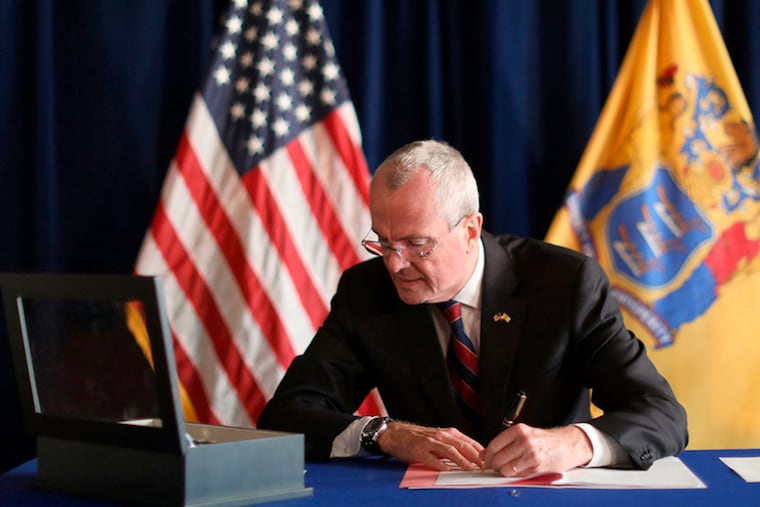Court delays New Jersey’s new aid-in-dying law
The judge cited the lack of state regulations. A doctor argued that he could not ethically participate, even to the extent of transferring patient records.

A New Jersey judge has granted a temporary restraining order against the state’s new Medical Aid in Dying law, which took effect Aug. 1.
The ruling came in response to a complaint from a Bergen County physician who opposes the law, his lawyer, E. David Smith of Bloomfield, said. They argued that the law should not take effect because the state has not yet written regulations to accompany it.
The law requires that six state agencies and boards “adopt such rules and regulations as are necessary.”
The state issued “guidance” late last month but has not said when regulations will be put in place. At that time, a state Health Department spokesperson said hospitals and health facilities could begin helping patients who wanted to use provisions of the law on Aug. 1.
Several large health systems were still creating their own policies on how the law would be carried out.
The restraining order likely will be in effect until the next court date, Oct. 23. The Attorney General’s Office will represent the state in this case. It declined to comment.
The law allows terminally ill residents to hasten their death with prescribed medications. Patients must find two physicians to certify that they are within six months of death, and also must be capable of taking the medications themselves. Health-care providers are not required to participate in carrying out provisions of the law.
Assemblyman John Burzichelli, the Gloucester County Democrat who was lead sponsor of the Medical Aid in Dying bill, said Thursday he had not read the court documents, but saw no reason to wait for regulations because the law itself is so detailed.
Because the law requires a waiting period of at least 15 days between a patient’s first request for aid in dying and receiving a prescription, Aug. 15 would be the first day when anyone might actually receive a prescription, Burzichelli said. He said he has not heard of anyone who has started the process.
“I would just hope that the court would move expeditiously to clarify any questions that it feels necessary to address so people who are waiting for the relief this law would provide have access to that relief,” Burzichelli said.
He said similar laws have withstood legal challenges on their merits in other states.
Compassion & Choices, a group that advocates nationally for aid-in-dying laws, vowed to defend New Jersey’s. “We believe that the law meets constitutional and regulatory requirements,” Kevin Díaz, chief of legal advocacy for Compassion & Choices, said in a release. “We’re confident we will ultimately defeat this attack on the rights of terminally ill patients because we have successfully defended legal challenges to medical aid-in-dying laws in California, Oregon, and Vermont.”
The law was opposed by the Catholic Church and some disability advocates who feared people with disabilities would be pressured to end their lives.
State Superior Court Judge Paul Innes granted the temporary restraining order Wednesday at the request of Yosef Glassman, a geriatrician who believes the law goes against his purpose in life, which is to heal and protect his patients. An Orthodox Jew, he also argues that suicide is not legal in New Jersey, and a law that allows it for some is saying that theirs is “not a life worth living, and it’s not a life worth saving,” said Smith, Glassman’s lawyer.
“It is morbidly ironic and tragic that at a time of surging suicides, particularly teen suicides, decried by all, the state of New Jersey is enabling, endorsing and sanctioning suicide and packaging it as a medical event and protecting those that facilitate suicide,” the complaint said.
The lack of regulations in the law, the complaint argued, “rendered its entire process of death wholly and dangerously unregulated.” The complaint raised concerns about variability of fatal drugs doctors might order, possible diversion of those drugs, and the need for more information on the qualifications of people allowed to witness patient decisions.
Doctors don’t have to participate in the law, but it requires them to transfer patient records if patients choose a different doctor.
Smith said Glassman felt he could not participate in any way, including transferring a file to a “doctor who will poison his patient.” Glassman would give records directly to patients.